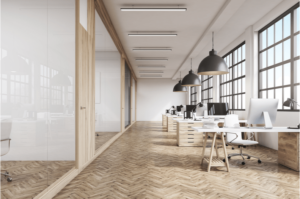How Thick Should You Have Your Flooring?
There are many variables which should be taken into account when choosing the best flooring for a domestic or commercial location. Wear and tear, maintenance, style, and safety are four common concerns. However, it is just as important to address the concept of thickness.
 What is the recommended thickness of modern flooring?
This is a bit of a loaded question, as it will depend upon variables such as the type of material and the level of foot traffic. Let us nonetheless take a look at some factors which will need to be addressed in order to determine the best solution.
What is the recommended thickness of modern flooring?
This is a bit of a loaded question, as it will depend upon variables such as the type of material and the level of foot traffic. Let us nonetheless take a look at some factors which will need to be addressed in order to determine the best solution.
 What is the recommended thickness of modern flooring?
This is a bit of a loaded question, as it will depend upon variables such as the type of material and the level of foot traffic. Let us nonetheless take a look at some factors which will need to be addressed in order to determine the best solution.
What is the recommended thickness of modern flooring?
This is a bit of a loaded question, as it will depend upon variables such as the type of material and the level of foot traffic. Let us nonetheless take a look at some factors which will need to be addressed in order to determine the best solution.
A General Guide to Vinyl Floor Thicknesses
There are two main components to address when considering the thickness of a floor. These include:- The thickness of the material itself.
- The wear layer.

